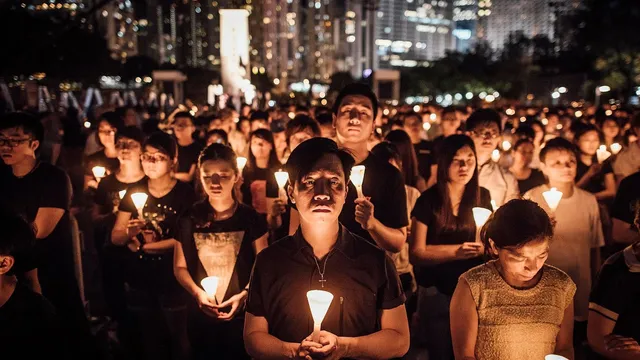
Rubio imposes visa restrictions on families of drug traffickers
2025-06-30 00:00- The U.S. State Department unveiled new visa restrictions on June 26, 2025.
- These restrictions target family members and close associates of drug traffickers.
- The policy aims to deter drug trafficking and protect U.S. citizens from the opioid crisis.
Express your sentiment!
Insights
The U.S. government has implemented a new visa restriction policy aimed at reducing the flow of deadly fentanyl and other illicit drugs into the country. Announced on June 26, 2025, by Secretary of State Marco Rubio, this initiative seeks to prevent family members and close associates of those sanctioned for drug trafficking from entering the United States. This move is part of a broader strategy to combat the fentanyl crisis, which has led to an alarming number of overdose deaths across the nation. Statistics indicate that more than 40% of Americans personally know someone who has died due to opioid overdoses, underlining the urgency of addressing this public health crisis. Fentanyl is often trafficked into the United States, posing significant risks to public safety and health. The new visa restrictions are designed not only to bar entry to these individuals but also to act as a deterrent against ongoing illicit activities associated with drug trafficking. The State Department aims to deploy all necessary resources to dismantle drug trafficking networks that have had devastating effects on communities. Marco Rubio expressed that these sanctions are crucial for safeguarding U.S. citizens, especially given that drug overdoses have emerged as a leading cause of death among young adults. The significant rise in deaths linked to fentanyl, with nearly 48,422 fatalities in a single year, emphasizes the critical need for enhanced security measures. The sanction policies are extensions of previous efforts aimed at curbing trafficking activities that have contributed extensively to the opioid epidemic. As drug trafficking remains a vital concern within the national dialogue, measures have incorporated key aspects of immigration enforcement, particularly in relation to the administration's commitment to border security. The newly unveiled visa restrictions reflect an ongoing commitment by the U.S. government to target those contributing to the opioid crisis through both legislative and enforcement measures, intensifying efforts to protect American lives from the ravages of illicit drugs.
Contexts
The impact of new visa restrictions on drug trafficking has emerged as a significant issue in contemporary discussions regarding border security and international crime. As countries around the world implement stricter visa policies, it is crucial to analyze how these changes may influence the dynamics of drug trafficking networks. Drug traffickers often exploit gaps in immigration systems, and visa restrictions could potentially inhibit their operations, altering established routes and methods of smuggling. Furthermore, the limitations imposed by these regulations may compel traffickers to adapt, possibly leading to new, unforeseen ramifications in the global drug trade. Research indicates that drug trafficking organizations often rely on legitimate travel documents to facilitate their activities. By tightening visa processes, authorities aim to mitigate the ease with which traffickers can traverse borders. However, while these measures may deter some individuals, they can also lead to an escalation in clandestine movements and the utilization of more dangerous smuggling methods. This unintended consequence could increase the risks associated with drug trafficking not only for those directly involved but also for innocent bystanders and law enforcement. Additionally, the interplay between visa restrictions and domestic policies on immigration can create a more complex environment for authorities tasked with combating drug trafficking. The effectiveness of tightening visa regulations will largely depend on the coordination among countries, as drug trafficking is a transnational issue. If one nation enacts strict measures without a global collaborative approach, traffickers may shift their operations to jurisdictions with looser controls. This shift can result in the movement of drug routes to areas previously considered secure. Furthermore, it may lead to a rise in violence and corruption in regions that become new focal points for trafficking, as criminals exert influence in areas where law enforcement is less equipped to respond effectively. In conclusion, while new visa restrictions may have the potential to disrupt some drug trafficking operations, they also pose challenges that could inadvertently empower criminals to innovate and adapt. This situation necessitates ongoing assessment and adaptation of policies to ensure they remain effective against evolving trafficking methods. Collaborative international efforts, improved intelligence sharing, and nuanced approaches to immigration and law enforcement are critical to mitigating the consequences of both drug trafficking and the strict visa regimes imposed in response to this issue.